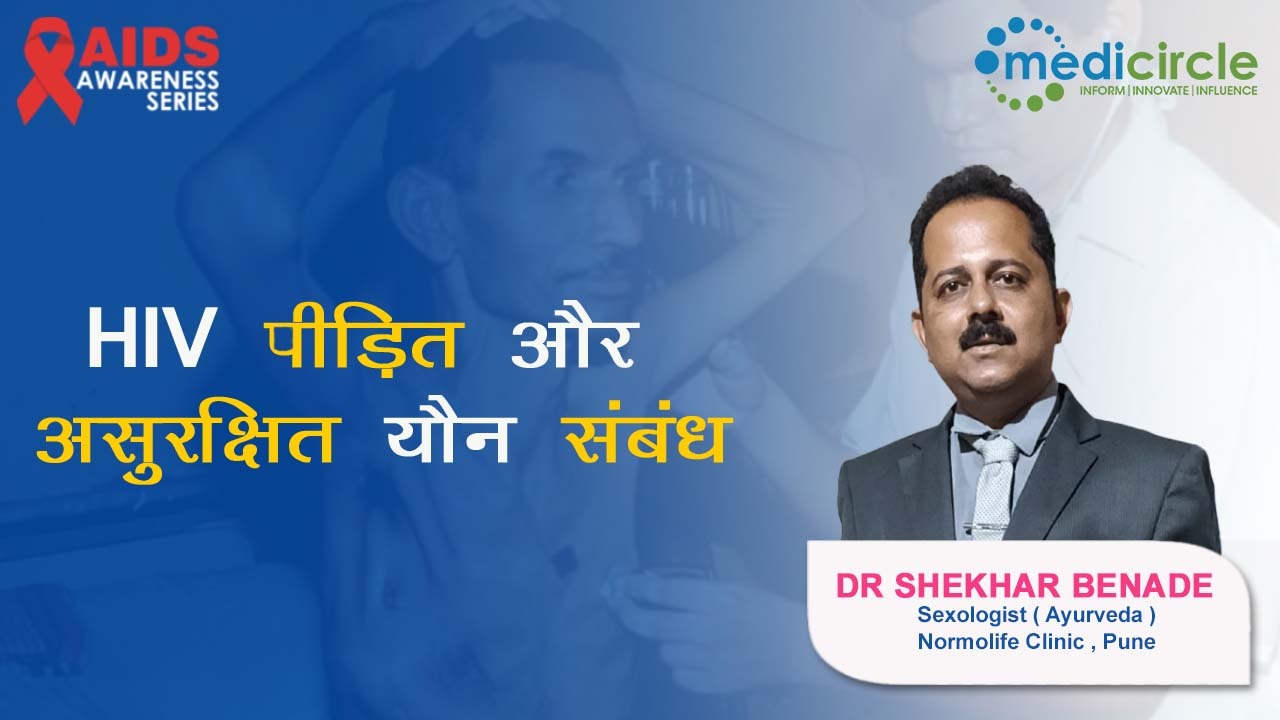Dr. Shekhar Benade is an Ayurveda Physician and Sexologist (Ayurveda) in Pune and currently practicing at Normolife Clinic. For the past 23 years, he has worked as an Ayurveda Physician.
Acquired immunodeficiency syndrome (AIDS) is a chronic, potentially life-threatening condition caused by the human immunodeficiency virus (HIV). According to the UNAIDS, there are 2.4 million living with HIV in India, and 70,000 of these are children. This means we still have parent-to-child transmission despite medicines. Data for 2022-23 showed 421 pregnant women were positive out of over 15 lakhs tested, indicating a positivity rate of 0.03%.
Human Immunodeficiency virus (HIV) causes Acquired Immuno Deficiency Syndrome (AIDS). Early symptoms of HIV infection
HIV Early symptoms
- Fever
- Fatigues
- Muscle ache
- Headaches
- Sore throat
- Swollen lymph nodes
- Sometimes skin rash, night sweats, mouth sores, etc
Later as the disease gets progresses, the immunity becomes weak and the patient may get various kinds of opportunistic infections such as Pneumonia, Tuberculosis, Candidiasis, anemia, and some neurological and psychological problems.
HIV transmission through blood transfusion
Dr, Shekhar says, “HIV can be transmitted through blood transfusion. It is among the main ways through which HIV has been transmitted in past years. But currently, the rate of transmission has been reduced because of the implementation of blood screening procedures. In many countries, donated blood is screened for the presence of the HIV virus. This has drastically reduced HIV transmission through blood transfusion.”
Injecting drug users and HIV
- Every time we must use new and sterile needles and syringes.
- Avoid reusing or sharing any injection equipment.
- Use sterile water and clean the injection site.
- Avoid mixing combination
- Frequent HIV testing is also recommended to reduce transmission.
HIV and unprotected sex
HIV can mutate and change over time with a depressed state of the virus. When two HIV patients are having unprotected sex, ART treatment can lower the viral load in the blood but can not eliminate the virus completely from the body.
PEP treatment
Post Exposure Prophylaxis (PEP) treatment is taken after getting exposed to HIV in order to minimize the risk of infection. It does not guarantee the treatment but it can significantly lower the risk of HIV transmission. It is recommended for adults who have been exposed to HIV infection through unprotected sex. It should be started within 72 hours of exposure. It is advisable to consult medical experts soon after the exposure.
ART drugs
Dr. Shekhar concludes, “There is no cure for HIV AIDS. However, with proper medical care and Anti-Retroviral Therapy (ART), patients can lead a normal and healthy life. ART includes a combination of drugs that are used to slow down the replication of the virus in the body, allowing the immune system to recover and reduce the risk of AIDS-related illnesses. There are many drugs such as NRTIs. NNRTIs and protein inhibitors in ART. In addition to ART treatment, healthy lifestyles and practices such as eating a well-balanced diet, regular exercise, and avoiding risk factors can reduce transmission. Regular medical care and monitoring are essential for the long-term care and well-being of HIV patients.”
(Edited by Renu Gupta)

 The main aim of ART is to get the viral load to below 50 copies/mL which is undetectable. Patients with a continuously undetectable viral load on ART pose virtually no risk of transmitting infection. Let’s hear what experts have to say on this.
The main aim of ART is to get the viral load to below 50 copies/mL which is undetectable. Patients with a continuously undetectable viral load on ART pose virtually no risk of transmitting infection. Let’s hear what experts have to say on this.










.jpeg)



.jpeg)
.jpeg)

.jpeg)


.jpeg)



.jpeg)
.jpeg)
.jpeg)


.jpg)

